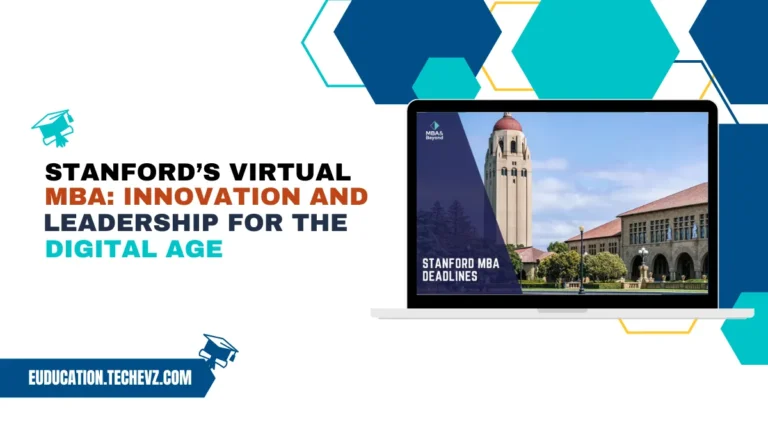MBA education is evolving rapidly, and one of the most influential shifts is the increasing emphasis on sustainability and social impact. As global businesses face rising concerns over climate change, ethical practices, and corporate responsibility, today’s business schools are redesigning MBA programs to prepare future leaders who can drive profitability while making a positive difference in society. The future of MBA education is no longer just about financial growth but also about fostering sustainable, inclusive, and socially responsible business practices.
Why Sustainability and Social Impact Matter in MBA Education
The modern business leader is expected to balance profitability with purpose. Global consumers, investors, and employees now demand that organizations act responsibly towards people and the planet. MBA programs are adapting by embedding sustainability principles into core subjects—finance, operations, marketing, and strategy—to ensure graduates understand how to integrate environmental and social goals into business plans.
For entrepreneurs, managers, and executives, this means learning to create long-term value not only for shareholders but also for communities and the environment.
Key Trends Shaping the Future of MBA Programs
Integration of ESG (Environmental, Social, and Governance) Principles
More MBA curriculums are incorporating ESG fundamentals. Students learn how to manage risk, measure impact, and lead companies that prioritize environmental consciousness and diversity in leadership. ESG skills are increasingly valued by multinational corporations and investment firms.
Rise of Sustainable Finance and Green Investments
Finance-focused MBA programs now include courses on sustainable finance, impact investing, and green bonds. This prepares graduates to design investment strategies that generate both economic returns and measurable social impact.
Focus on Social Entrepreneurship
Traditional entrepreneurship courses are being expanded to include social entrepreneurship, where the primary goal is solving pressing social issues while maintaining profitability. MBA students explore models for building businesses that address poverty, healthcare access, education gaps, and environmental sustainability.
Partnerships with Global Organizations
Leading business schools collaborate with organizations like the UN, World Bank, and sustainability-driven NGOs. Through case studies and live projects, MBA students gain exposure to real-world global challenges and learn how to create scalable, impactful solutions.
Sustainability in Operations and Supply Chain
Programs now emphasize ethical sourcing, renewable energy, circular economy principles, and sustainable logistics. This trend equips future managers to design supply chains that are cost-efficient yet environmentally friendly.
Technology and Sustainability Analytics
As technology continues to drive innovation, MBAs are integrating tools like AI, big data, and sustainability analytics to identify inefficiencies, predict market changes, and measure climate-related business impacts.
Benefits of Sustainability-Focused MBAs
- Attractiveness to Employers: Companies prefer hiring MBAs trained in sustainable practices to help them meet ESG goals.
- Enhanced Leadership Skills: Students gain holistic perspectives, allowing them to balance business growth with ethical responsibility.
- Competitive Advantage: Graduates position themselves as leaders capable of steering organizations towards long-term resilience.
- Global Impact: Future business leaders learn how to combat climate risks, reduce carbon footprints, and address inequality.
Final Thoughts
The future of MBA education is purpose-driven. By weaving sustainability and social impact into business learning, MBA programs are creating leaders who can shape industries while protecting the planet and uplifting communities. Students who choose sustainability-focused MBAs won’t just excel academically or financially—they will emerge as change-makers capable of redefining the role of business in society.
FAQ Schema
Q1: Why is sustainability important in MBA education?
Sustainability ensures future business leaders can balance profitability with environmental responsibility and social equity, preparing them for ethical leadership.
Q2: What is a sustainability-focused MBA?
It’s an MBA program that integrates environmental, social, and governance (ESG) principles into traditional business disciplines to promote socially responsible leadership.
Q3: How does social impact fit into an MBA program?
Social impact MBA programs train students to design businesses and strategies that address global challenges like poverty, inequality, and climate change while generating profit.







